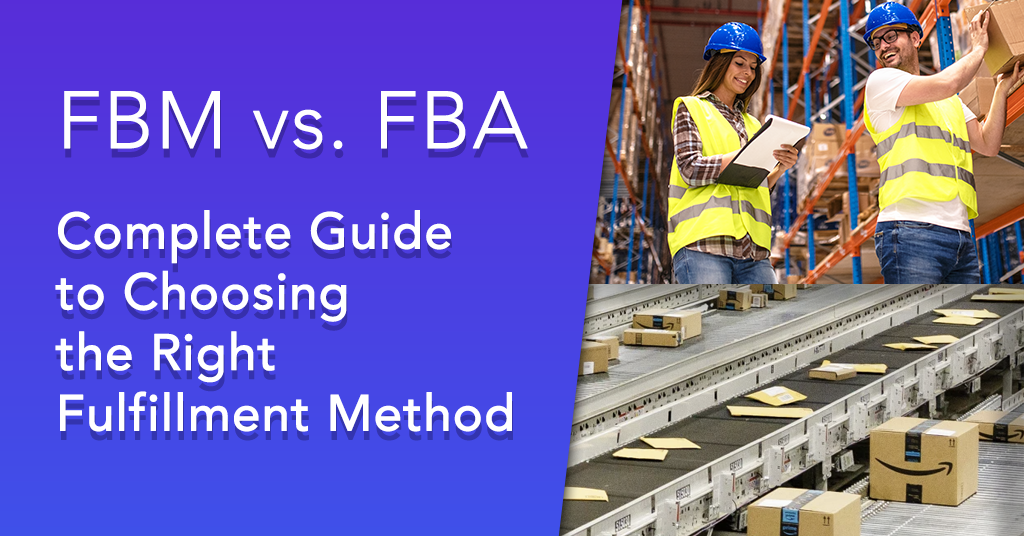This guide will help you choose self-fulfillment (FBM) or Amazon’s Fulfilled by Amazon (FBA) for your products, as not all products are ideal for FBA. At the recent Amazon Accelerate conference, Amazon shared valuable insights on determining the best fulfillment method based on the specific characteristics of your products and your selling strategy. Here’s a breakdown of the recommendations to help you make the right choice.

Fulfilled by Amazon (FBA)
- Ideal for sellers without fulfillment infrastructure: FBA is an excellent option for those who lack their own shipping networks or don’t have the capacity to manage logistics.
- Products needing fast delivery: Items that customers demand quickly, like seasonal products, perform well under FBA due to Amazon’s efficient shipping and Prime access.
- Prime Badge advantage: Products listed with the Prime badge can see a sales boost of 20–25%, making FBA more appealing for high-velocity items.
- Best for high-velocity products: Items selling at least 15–20 units per month are well-suited for FBA, leveraging Amazon’s fast shipping.
- Not ideal for certain products:
- Refrigerated items: FBA doesn’t support products needing refrigeration.
- Large, multi-box shipments: Items that ship in multiple boxes but are considered a single ASIN are not a good fit for FBA.
- Seasonal inventory management: Sellers can benefit from sending seasonal products to FBA, but they need to carefully manage stock levels to avoid overstocking or running out.
Fulfilled by Merchant (FBM)
- Heavy and bulky products: Items over 50 pounds may be more profitable with FBM since FBA fees can cut into margins for large products.
- Product testing: For items that sellers are unsure about in terms of sales velocity, FBM is a lower-risk option before fully committing to FBA.
- Lower-velocity products: Products that don’t sell at a fast rate are better suited for FBM to avoid long-term storage fees associated with FBA.
- Greater control over shipping: FBM allows sellers to have direct control over fulfillment, shipping, and packaging, making it more suitable for custom requirements.
Key Takeaways
- FBA is great for fast-moving, lightweight, and seasonal products where speed and the Prime badge can significantly boost sales.
- FBM is better for large, heavy, or lower-velocity products where the seller may benefit from handling their own logistics and testing products before scaling up with FBA.
Amazon emphasized the importance of regularly reviewing fulfillment strategies based on product performance, seasonality, and costs to ensure sellers are using the most effective method for their specific products.